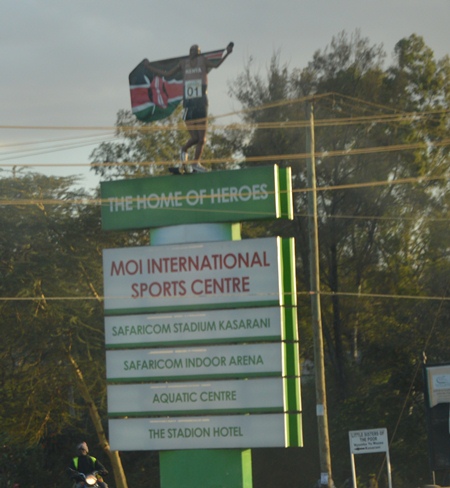The advent of devolution in Kenya is credited for bringing resources and power closer to the people of Kenya. This was not the case when the country operated under the centralized form of government. At that time, projects were awarded to those who vote for the leaders in power. Therefore, voting for the opposition meant being segregated from development.
Kenya has in the past engaged in construction of huge infrastructure projects such as Safaricom Stadium along Thika Road. Find more details below about the stadium.
Kasarani International Stadium
It’s amazing to note the rate at which infrastructure projects are coming up in Kenya.

The Stadium was built in 1987 to host All African Games which was held in Kenya. The Stadium is multi-purpose. It consists of a hotel with 108 bed capacity, sitting arena for 60,000, an indoor arena and a swimming pool.
In 2010 the stadium underwent renovations at a cost of Ksh. 900 million through a grant from the Chinese government. This is a clear indicator that mega projects are very expensive to establish.

Challenges
Misuse of Public Resources
It is saddening to note that corruption has been devolved to the counties. Governors and their cronies have been squandering taxpayers’ money at unprecedented rate. For instance, a story is told of a Kenyan governor who visited Australia and saw a very nice building. When he came back home, he brought down his house and built a fresh using the plan of a house he saw in Australia. After some time he visited Belgium. He again saw another good house there. On coming back home, he brought down his new house to adopt a Belgian plan. All these events were done using public resources. This is the extent to which our politicians are raping our economy.
Shoddy Construction Work
Recently I was surprised to learn that shoddy construction works is not only done in government. It is also a practice in the private sector. In one of the North Eastern Counties of Kenya. A contractor was hired to built five mosques and the end product was buildings with cracked walls. The the intended beneficiaries refused to use the mosques for prayers because they believed that the walls will collapse on them. The donor was saddened by the extent of shoddiness that was displayed by the contractor. Since he was committed towards promoting the work of God. He hired the services of a different contractor and rebuilt the mosques afresh.
READ MORE;
–Why Are Vehicles Cheaper In Uganda Compared To Kenya?
–4WD Vehicles Are Rare On Kenyan Roads, Do You Agree With Me?


